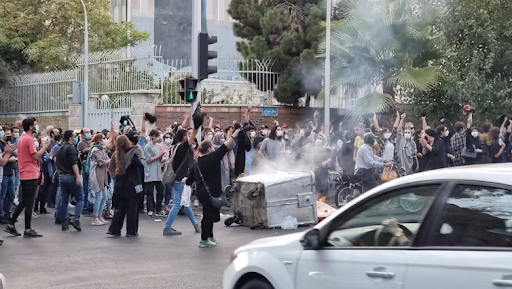
In an age when the entire world must confront the challenge of increasing authoritarianism, Iran has shown an impressive ability of propagating its distinct form of tyranny. The Iranian regime's constant determination to eradicate political dissidents, whether they are within the country or abroad, demonstrates its commitment to silencing opposition by any means necessary. The dictatorial nature of this approach, hidden as a defense of state sovereignty, brings up serious issues about its impact as well as how the international community should respond.
Iran's assassinations of dissidents abroad can be seen as a demonstration of their effective use of coercive tactics in international relations. The regime's list of targets includes cities such as Istanbul, Paris, and Berlin, creating a chilling narrative of their deadly intentions. Consider the tragic incident involving Saeed Karimian, the owner of GEM TV, who was fatally shot in Istanbul in 2017. What was his offence? Through his satellite network, he promoted Western cultural values, which Tehran saw as a direct challenge to its ideological foundations.
The IRGC, frequently leading these operations, enthusiastically demonstrates its ability to operate beyond Iran's borders. The statement made by the Supreme Leader's military advisor regarding the actions of the IRGC beyond borders and was not merely an exaggeration, but rather a disturbing pledge. This approach stands in stark contrast to the more subtle yet equally harmful methods used by other authoritarian governments.
Iranian intelligence has become exceptionally proficient at kidnapping dissidents from foreign countries and carrying them back to Iran against their will. Habib Chaab, an Iranian-Swedish dual national, experienced the harsh reality of being abducted in Turkey and taken to Iran, where he is now subjected to the regime's infamous form of justice.
These operations have an essential part in Iran's history of repression, serving as a cornerstone of oppression. The regime utilizes its extensive network of operatives and collaborative states to carry out these operations, commonly bypassing international norms. It is evident that Iran's influence extends far and its perseverance knows no limits, especially when facing dovish opposition from major western powers.
Robert Malley, the American special envoy to Iran has commented on the tactics of the Iranian regime to suppress its people, diplomatically I may add. "The Iranian regime should know that we will not tolerate their continued oppression of their own people. The international community must stand united against the gross human rights abuses perpetrated by the Iranian authorities. The time for mere condemnations is over; we need concrete actions to support the brave people of Iran fighting for their rights."
In the digital age, Iran has effectively incorporated cyber warfare into its repertoire of repressive tactics. Those who hold opposing views are constantly being watched, their messages intercepted and their online activities closely monitored. The regime utilizes advanced surveillance technology to monitor the activities of dissidents and instill fear through the constant possibility of being exposed and facing consequences.
The targeting of dissidents' families is a highly concerning tactic employed by Iran. The regime uses various tactics to exert pressure on dissidents abroad and silence their voices, including harassing, threatening and imprisoning their relatives who still live in Iran. This strategy not only seeks to intimidate the person being targeted, but also serves as a warning to others: demonstrating divergence will have personal and familial repercussions of the harshest nature.
Despite the techniques used by the Iranian regime are clearly effective, they encounter opposition. Dissidents are finding creative ways to resist, social media accounts like Talkhand Media on Twitter/X leverage humor and satire to highlight the absurdity and brutality of the regime. It is essential that human rights organizations, foreign governments and the international community to step up their attempts in combating Iran's extraterritorial repression.
Sanctions, diplomatic pressure and substantial backing for dissidents are vital components of an efficient response. Through their constant determination to speak out, shedding light on injustices and support human rights, they bravely oppose the regime's constant attempts to silence their voices. Their unalterable courage in the midst of inflexible oppression acts as an inspiring symbol for change.
The acts of violence of Iran are a powerful reminder of the extreme measures that authoritarian regimes will continue to take in order to hold onto power. The Iranian regime has built a powerful system of fear and control through various means such as assassinations, kidnappings and familial intimidation. The international community has to demonstrate support with these courageous individuals and take strong measures that will put an end to the cruel practices of the Iranian regime. Ultimately, the question is not whether the Iranian regime will continue to persecute its people, but whether the world will allow it to do so with impunity.
Disclaimer: IBT does not endorse the above content.









